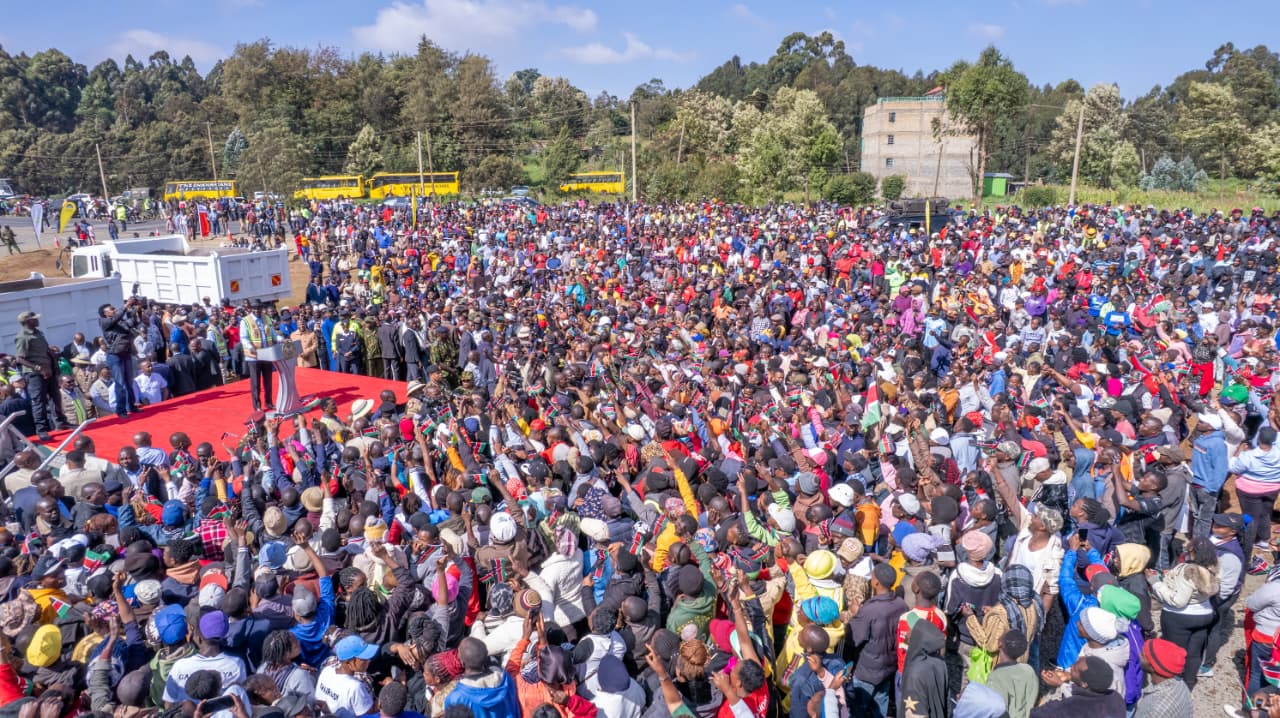
President William Ruto has defended the Rironi–Mau Summit Highway project as a people-centred development initiative, dismissing critics who he says are fixated on political calculations ahead of the next general elections.
Speaking aboard a flight on Friday, the President said the project’s primary goal is to ease movement, boost trade, and lower the cost of living for ordinary Kenyans who rely on efficient transport networks.
Ruto said the road is meant to serve the everyday needs of citizens, farmers transporting produce, workers commuting to jobs, and families trying to access essential goods and services.
“This is about people being able to move from home to work. It is about the movement of goods,” he said.
“This road is about farmers being able to move goods and services to their farms and to the market. This is about how we can make livelihoods affordable.”
He linked the proposed upgrade to his administration’s broader economic agenda, including the affordable housing programme and efforts to improve food accessibility.
The President further dismissed critics who he says are fixated on politics, accusing them of being more concerned about power than development.
“Many of the people I hear talk are talking about leaders—who is wantam, tutam, whatever term—and they are talking about the next elections,” he said.
“There is a world of difference between those focused on selfishness, positions, and the next elections, and those of us focused on transforming our country.”
The Rironi–Mau Summit road upgrade is among Kenya’s most significant planned infrastructure undertakings, stretching approximately 175 kilometres from Rironi through Nakuru to Mau Summit.
It is designed to expand the current corridor into a dual carriageway, easing congestion on one of the busiest sections of the Northern Corridor, which connects the port of Mombasa to Western Kenya and neighbouring countries.
The project includes major interchanges, improved safety features, service lanes, and modern tolling infrastructure.
It aims to shorten travel time, reduce accidents, lower vehicle operating costs, and promote regional trade by ensuring faster movement of goods.
The corridor currently handles thousands of trucks daily, making it crucial to the agricultural and manufacturing sectors.
Speaking during the launch of the Public-private Partnership project in Kiambu county, Ruto said the Nairobi–Nakuru–Mau Summit and Nairobi–Maai Mahiu–Naivasha highway projects will create thousands of jobs and equip 15,000 young Kenyans with technical skills.
He said the works mark the beginning of a new era in Kenya’s infrastructure development, adding that the initiative goes beyond building transport corridors.
"This project will create thousands of jobs, with 15,000 young Kenyans gaining skills as they help build this highway," he said.
"It will not only construct roads, but careers and futures, with local content leading and Kenyan businesses at the centre."
He noted that the projects represent a shift in how Kenya finances major infrastructure.
















